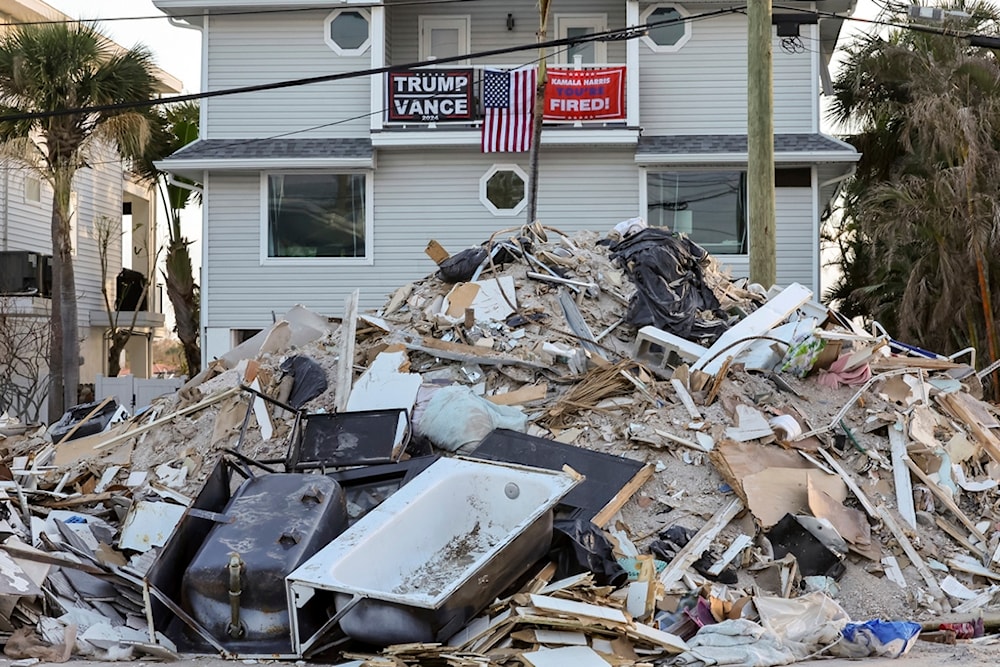Why US foreign policy is under fire from populist Right: FPIF
The storms that hit the US have highlighted the cost of America's extensive foreign entanglements, sparking a debate over whether federal dollars would be better spent domestically.
-

Debris remains on the streets following Hurricanes Helene and Milton as Floridians vote in the general election on Tuesday, November 5, 2024, in Treasure Island, Florida. (AP)
An analysis published on Foreign Policy In Focus by writer Philip Balboni draws attention to the growing divide over US spending priorities in the wake of Hurricanes Helene and Milton.
The two storms, which struck the southeastern US coast with catastrophic force, left hundreds dead and caused billions in damages.
Yet, as affected communities scramble for federal assistance, Balboni's piece exposes a troubling imbalance in how Washington allocates funds—raising critical questions over the government's commitments to domestic welfare versus overseas interests.
While the Biden administration has touted its quick response, Republican leaders have sharply criticized the relief efforts, accusing the White House of shortchanging hurricane victims.
Balboni points to a stark contrast: while disaster relief funding for the affected Gulf Coast states totals just $860 million, US foreign aid last year reached $60 billion, and the defense budget exceeded $800 billion.
"Communities battered by storms are questioning why their needs are underfunded," Balboni writes, noting how foreign policy and military spending are increasingly under fire from Americans struggling at home.
Workers push for isolationism
This criticism comes amid a shift in conservative sentiment, as blue-collar voters who once championed American interventionism now rally around a more isolationist stance.
Balboni's analysis captures the frustration of Gulf Coast residents who feel abandoned.
For these voters, the storms have highlighted the cost of America's extensive foreign entanglements, sparking a debate over whether federal dollars would be better spent domestically.
Read more: Voting in turmoil: Americans brace for polls amid unrest fears
Political experts suggest this rising populist sentiment could influence the upcoming elections.
With more Americans, particularly in conservative states, questioning the balance between domestic support and military spending, both parties may face mounting pressure to realign their platforms.
Ultimately, Balboni's analysis reveals a deepening disconnect in US fiscal policy—a rift he believes may only widen as Americans grow weary of "wars half a world away" while critical needs go unmet at home.
Unprecedented devastation
Hurricanes Helene and Milton, which struck the southeastern United States in late September and early October 2024, have caused unprecedented devastation, resulting in significant economic losses and raising concerns about federal disaster response and spending priorities.
Estimates suggest that Helene caused between $30.5 billion and $47.5 billion in property damage across 16 states, with insured losses ranging from $10.5 billion to $17.5 billion.
Notably, a significant portion of the damage was uninsured, particularly due to widespread flooding in areas with low flood insurance coverage.
As for Milton, preliminary assessments indicate that total damage and economic loss could be between $160 billion and $180 billion, making it one of the most damaging storms in Florida's history.
Insured losses for Milton are estimated to be between $50 billion and $60 billion.
Read more: 4 dead, 150,000 people without power from Hurricane Debby: US

 3 Min Read
3 Min Read








